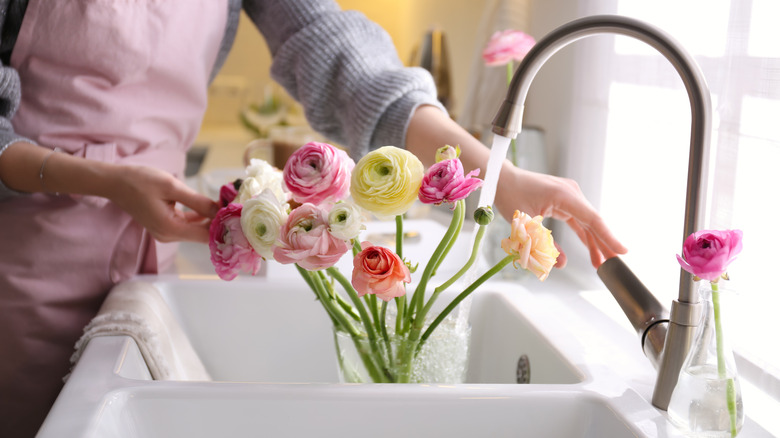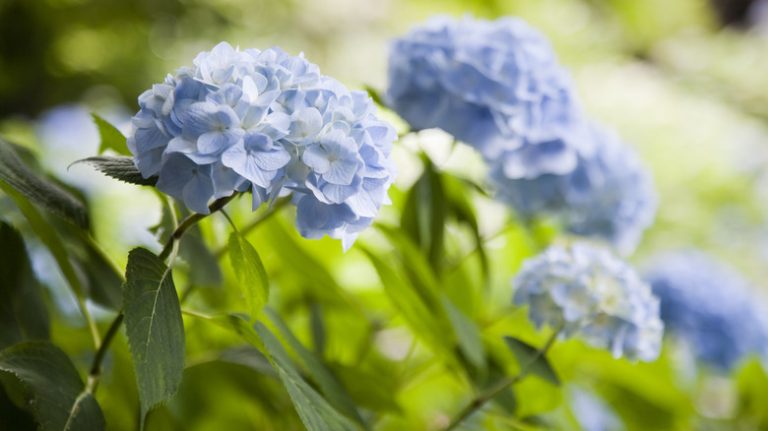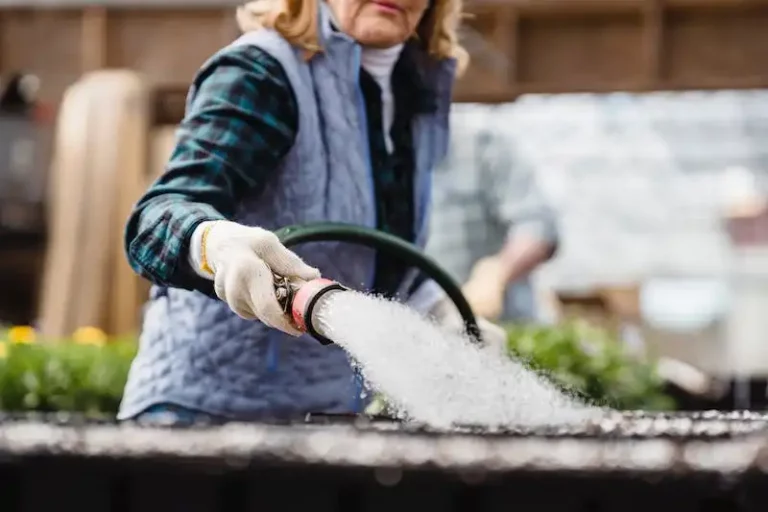Try as we might to manifest a green thumb, some of us will still accidentally leave even the easiest houseplants to wilt and wither. For us, cut flowers are life.
Not long ago, Rutgers University reported what we wannabe gardeners already knew in our hearts — that flowers boost your mood. Yes, plants in general offer widespread benefits, from an uptick in memory retention by keeping succulents at your desk to lowered sickness in the office and curbed anxiety and insomnia, reports Red Online. Unfortunately, the knack of keeping plants thriving is not a skill that comes easily to all. Some continue to hone with a trial and error flair that, alas, remains heavily on the side of error.
While thriving plants boost the whole vibe of the home, suffering plants have the opposite effect, all the way over to legitimately diminishing our mental wellness. Until our gardening skills are squarely resolved, lean we shall on the benefits of cut flowers, of which there are plenty. A fresh bouquet can spark creativity, lower blood pressure, and more. Our only task is to keep them vibrant as long as possible. For best success, here are some tips.
Tools and temperature matter

Buds that are too tightly wound don’t always open once they’re arranged in a vase. So, to start off on the right foot, pick blooms that are just beginning to open. When you get your chosen bouquet home, start by adding tepid (not cold) water to a vase. Mix in a few drops of vinegar and two teaspoons of sugar. Alternatively, a splash of Sprite or other clear, citrus soda will work. Treehugger explains that sugar offers nutrients and vinegar prevents the growth of bacteria.
While your sugar-vinegar concoction is dissolving, fill your sink a quarter of the way up with water so you can submerge your stems while trimming their ends. This keeps the stems from sucking up air that can block their moisture uptake system. Use any cutting utensil so long as it is sharp and can clean-cut your stems at a 45 degree angle. Do this again every few days so your flowers can continue to draw in the water that will keep them fresh the longest.
Before arranging your flowers in a vase, clip or pull off any leaves that would otherwise be left to rot in the water. It’s also important to keep your flowers cool. Some sources say to refrigerate your bouquet overnight. It may be more important to change the water every so often.
Steer clear of pennies, but consider vodka

Pennies are for your penny jar, not a life hack for cut flower longevity. An old adage suggests that the copper in the penny cuts bacteria, but, since 1982, pennies have been made of zinc with copper plating (via U.S. Mint). Plus that copper is not soluble in a way that can help your blossoms.
Another possibly misplaced adage is the aspirin-in-the-vase advice from yore. Up for debate is whether the acetylsalicylic acid of aspirin lowers the pH of water for faster water absorption at the base of the stem or not. Live Science says the jury is still out on whether this helps your bouquet’s freshness or actually hinders its longevity. Instead, stick with the lesser known but more dependable tips, like vodka.
A few drops of vodka can help keep your bouquet fresh, but not for the reasons most think. The claim is that vodka has disinfectant properties that help out the longevity of your cut flowers, but more likely its benefit lies in its ability to cut a flower’s ethylene production. That goes hand-in-hand with another proven longevity trick — never place your new bouquet next to a bowl of pears, apples, bananas, or avocados. According to Chrysal, some produce emits ethylene gas in its ripening process, which will, in turn, force your flowers to bloom faster. (Bonus tip: Keep your artichokes and asparagus away from these ethylene-emitters as well).




